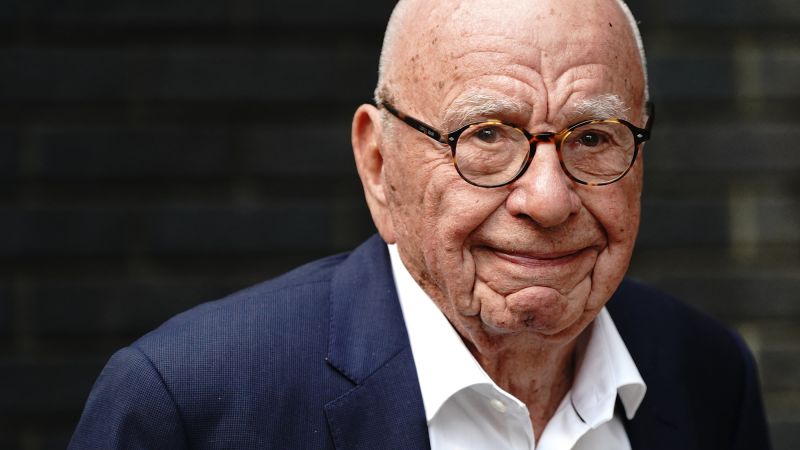A Nevada judge has ruled in favor of billionaire media mogul Rupert Murdoch and his family holding a secret court battle over the future of their media empire behind closed doors. Media organizations, including CNN, The New York Times, NPR, the Washington Post, Reuters, and ABC, petitioned to unseal the case and allow public access, but were rejected. The case involves a dispute over the trust and who will ultimately control the family businesses after Murdoch’s death, with all parties agreeing to keep the case sealed.
Nevada offers a particularly private court setting for matters like family trust decisions, allowing cases to be locked behind closed doors to such an extent that their existence is not publicized on court dockets. The case, identified as “The Matter of the Doe 1 Trust, PR23-00813,” remained unknown until The New York Times reported on it in July. Attorneys for the family members argued that unsealing the case would reveal confidential information related to Murdoch’s business, including Fox News and The Wall Street Journal, potentially jeopardizing his safety.
The judge agreed with the arguments put forth by the attorneys, stating that a family trust, even one that holds stock in publicly traded companies, is a private legal arrangement deserving of protection under sealing statutes. While the judge determined that documents related to the petition to open the case could be made public, the specifics of the case, scheduled to begin next week with the Murdoch family likely in attendance, will remain sealed. The public does have a right to know the identities of the judge and attorneys involved in the case, but beyond that information, the case will remain confidential.
Despite the media organizations’ efforts to unseal the case and allow public access, the judge’s decision upholds the family’s desire for privacy and protection of sensitive information related to Murdoch’s business and security. The case highlights the level of secrecy afforded to family trust decisions in Nevada’s court system, emphasizing the importance of confidentiality when it comes to high-profile individuals and their business dealings. The ruling ultimately allows the Murdoch family to proceed with their court battle while maintaining the utmost privacy and security surrounding the case.
The decision to keep the Murdoch family’s court battle behind closed doors raises questions about transparency and accountability in legal proceedings involving influential figures and multimillion-dollar empires. While the judge acknowledged the public’s right to know certain basic information about the case, the overriding concern for protecting sensitive business details and the safety of Rupert Murdoch was prioritized. The case serves as a reminder of the challenges in balancing the public’s right to access information with the rights of individuals to privacy and security, particularly in high-stakes legal disputes that could have far-reaching implications for major corporations and media outlets.
As the secretive court battle over the future of Rupert Murdoch’s media empire plays out in Nevada, the closed-door proceedings underscore the power dynamics at play in high-profile cases involving wealthy and influential individuals. While the media organizations involved in the case seek transparency and openness, the family’s desire for confidentiality and protection prevails, showcasing the lengths to which individuals will go to safeguard their interests and reputations. The continued secrecy surrounding the case raises concerns about accountability and oversight in matters of significant public interest, highlighting the challenges of balancing privacy rights with the public’s right to know in the legal system.













